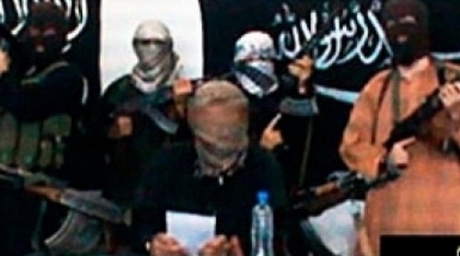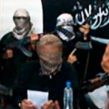
Network of Jund al-Khilafah in Kazakhstan Wider Than Predicted
Publication: Eurasia Daily Monitor Volume: 9 Issue: 12
By:

On December 29, 2011, 41-year old Yerik Ayazbayev, the leader of a Jund al-Khilafah (JaK – Army of the Caliphate) cell based in the Almaty suburb of Boraldai Village, was killed in the Southern Kazakhstan city of Kyzylorda (Interfax [Astana], December 30). Five of his fellow fighters, including the 34-year old sub-leader, Agzhan Khasen, were killed in Boraldai four weeks earlier on December 3. Kazakhstan security forces killed Khasen and the four other fighters inside their safe house, but Ayazbayev escaped.
It is probable that Kazakh intelligence agents became aware of the Boraldai cell’s existence from an investigation following a November 8 roadside shooting in Boraldai that killed two police officers. Kazakh authorities suspected the Boraldai cell of carrying out that shooting and possibly another November 11 shooting in Almaty, which killed two police officers. The cell was reportedly planning additional attacks in Almaty (Tengrinews, December 5).
Ayazbayev’s location in Kyzylorda was revealed after he accidentally set off an explosion in the five-story residential building where he was hiding. This led police to investigate, and he was killed later in the day on December 29 (Interfax [Astana], December 29). Like the Khasen-led fighters in Boraldai, Ayazbayev refused to surrender when surrounded, and he returned gunfire until he met his death.
On December 6, three days after the Boraldai shootout, JaK issued a statement saying that JaK fighters are “ready to be killed in the thousands in order to support [Islam]” and that “losing our lives is a cheap price that we pay for this cause.” JaK asked that “God give glory” to the fighters who were killed by “the apostate forces of the Nazarbayev regime” at “a base where the five lions of the al-Zahir Baybars Battalion of Jund al Khilafa were gathered” (https://azelin.files.wordpress.com/2011/12/jund-al-khilc481fah-22on-the-death-of-five-of-its-members-in-the-state-of-almaty-kazakhstan22.pdf).
JaK is closely following events within Kazakhstan and has connections to terror cells spanning the country from east to west. In addition to claiming credit for the Boraldai cell, JaK also claimed credit for Maksat Kariyev’s terror rampage in Taraz, Southeastern Kazakhstan that killed five security officers and concluded with a suicide bombing on November 12, 2011 and two botched bombings in Atyrau on October 31, 2011.
An investigation of the three surviving members of the Atryau cell (the fourth accidentally blew himself up near the Prosecutor-General’s office) revealed that the operation was intended not to kill anyone, but to “intimidate authorities” (Interfax [Astana], November 9). JaK’s corroboration of the cell’s intent in a statement after the attacks, but before the results of the investigation shows that JaK does have inside knowledge about Kazakhstan-based cells – it is not merely a media-savvy propaganda team. The JaK statement said: “We refute that the last attack was carried out as a martyrdom-operation. It seems that the bomb exploded accidently, which led to the martyrdom of its carrier. We ask Allah to accept him among the martyrs” (Interfax [Almaty], November 1).
The investigation also revealed that the JaK leadership provided direct orders for the Atyrau operation from its base in the Afghanistan-Pakistan border area (Interfax [Astana], October 9). However, the four cell members were radicalized in Atyrau and contacted JaK in September 2011 on their own (Interfax [Astana], November 9). Likewise, in an investigation of six members of the cell that prepared Maksat Kariyev for his terror rampage in Taraz, the Kazakh authorities determined that the cell had drawn up the attack plans for Kariyev on its own (Tengrinews, November 30).
There is still no evidence that JaK has dispatched fighters from Afghanistan-Pakistan to Kazakhstan to carry out attacks. Rather, there appears to be a strong homegrown element in JaK-linked terror cells in Kazakhstan.
• The Atyrau cell was influenced by Said Buryatsky (a.k.a. Aleksandr Tikhomirov), the late Russian-born Islamic convert who became a jihadi ideologue in the North Caucasus; but, their decision to commit a terror attack was made in Kazakhstan. Atyrau is showing signs of growing extremism with 70 percent of practicing Muslims between the ages of 13 and 30 believed to be influenced by Salafism (Tengrinews, November 17).
• Maksat Kariyev was a former senior rifleman in the Kazakh army. Prior to his attack in Taraz, he consulted local Muslim religious leaders about the consequences of him committing a suicide attack against infidels (Tengrinews, November 14). In fact, Kariyev’s “spiritual leader” persuaded him and his cell members to conduct jihad and kill police in order to establish an Islamic Caliphate (Radio Free Europe [Astana], November 30).
• Yerik Ayazbayev followed JaK commands to target the “apostate” Kazakhstani State, but no reports indicate that he or any of his cell members trained in Afghanistan-Pakistan.
The motivations that appear to drive the militants in Kazakhstan to carry out attacks – from perceived religious oppression, to despising the Nazarbayev regime, to employment problems – are derived from circumstances within Kazakhstan. JaK exploits this discontent, offers tactical support, and raises the profile of each attack in the country by managing the post-attack propaganda campaign.




